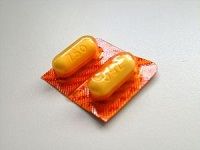Article
IBS Is Yielding as Drugs, Treatments Proliferate
Author(s):
Treatments for irritable bowel system are proliferating. In addition to new drugs, more drug candidates are entering the approval pipeline. Even as physicians await these new products, their patients are getting into the act by doing internet research and other reading-and tv watching-that has them trying unproven remedies with mixed results.

Treatments for irritable bowel system are proliferating. In addition to new drugs, more drug candidates are entering the approval pipeline. In all there are about a dozen therapeutics now available for IBS, including new diets and biological therapies including fecal microbiota transplant. That is giving clinicians many more options that they had a decade or so ago. It is a welcome change for doctors who were frustrated their inability help all of their patients.
“We’re getting better—we sucked for so long, but we’re getting better,” said Darren Brenner, MD, of Northwestern University in Chicago.Even as physicians await these new products, their patients are getting into the act by doing internet research and other reading—and tv watching—that has them trying unproven remedies with mixed results.
In an effort to bring colleagues up to speed with all the developments, a panel of gastroenterologists discussed therapies today at the American College of Gastroenterology Annual Scientific Meeting .
The advent of probiotics being sold in food products and on the shelf poses a conundrum for clinicians, said Mark Pimentel, MD, director of the GI motility program at Cedars-Sinai Medical Center.
Some are one organism, some are multi-organisms. Though they are considered a medical food by the FDA they are registered but not regulated. “Many companies are trying to enter the large IBS market,” Pimentel said.
Complicating clinicians’ efforts to best advise their IBS patients on whether these remedies work, they can contain different species of a bacteria, or different strains that confer different benefits. Quality control poses another problem, with consumers not knowing if what they think they are taking is what they are actually getting.
Controlled studies of efficacy are lacking. Citing a paucity of research, he said “Probiotics have leapt ahead of science” with hundreds of products sold in drug stores and elsewhere. “I don’t want to kill probiotics but we need medical studies,” he said. His search for random controlled studies turned up just one in the Lancet, which looked at a Lactobacillus product. “Essentially it showed that it causes gas,” he said. The study involved 3,000 patients who took the product vs. controls who took drugs.
New and recently approved drugs are going to provide better pharmaceutical options, he and other speakers agreed. Of a long list of such products, rifaximin is the safest and most effective so far, he said. He is a consultant for Salix, the company that owns the patent on the drug.
The study, known as TARGET, found that in IBS-D patients who took rifaximin for two weeks, and had symptom recurrence within 18 weeks, taking the drug again did not increase antimicrobial resistance. There were 103 patients in the study. They showed only transient resistant to Staphylococcus, but “susceptibility of other bacteria types did not appear to be affected by rifaximin exposure.”
In a later session of the meeting, Pimentel presented data from a study due to be published later this year. The topic was rifaximin treatment and microbial antibiotic sensitivity. Presenting data from a manuscript due to be published later this year,
Insurers have been slow to approve payment, which costs about $1,000 for a two-week course, but are gradually coming around, the panelists agreed.
The fact that rifaximin does not cause resistance should be a good selling point. Pimental noted that two cheaper antibiotics used, ciprofloxacin and neomycin, “generate resistance immediately.” He said he uses it as a first-line treatment. Patients get it for 14 days and if they respond positively they are likely to stay well. Even with relapses, their symptoms will not as severe as before treatment, and the drug does not appear to trigger resistance, he said.
The drug has FDA approval for treating IBS. His second line choice is eluxadoline, and, for women only, alosetron. If none of those work, probiotics or tricyclic antidepressants might. Another choice, one endorsed by other speakers, is peppermint oil. Once a folk remedy it has been showed to have pharmaceutical benefits.
Pharmaceuticals available include linaclotide, libiprostone, rifaximin, eluxadoline. In Chicago, treatment with serum-derived bovine immunoglobulin is popular. Brenner also endorses peppermint oil and probiotics. “Peppermint oil is good for flares,” he said. Another eight drugs are in the FDA pipeline.
Responding to an audience question, the panelists agreed that patients are being somewhat victimized when they purchase commercial analyses of stool samples. The lab tests are meant to tell customers what their intestinal microbiome looks like.
Brenner said the tests are useless to clinicians. “People are paying $300 to $400 for them because insurance doesn’t cover it,” and they may or may not have reliable information. For instance, he said, the stool panels will identify a genus but not a strain or species. “The citations they use go back to the 1960s,” he noted, “Things have changed so much since then.”




